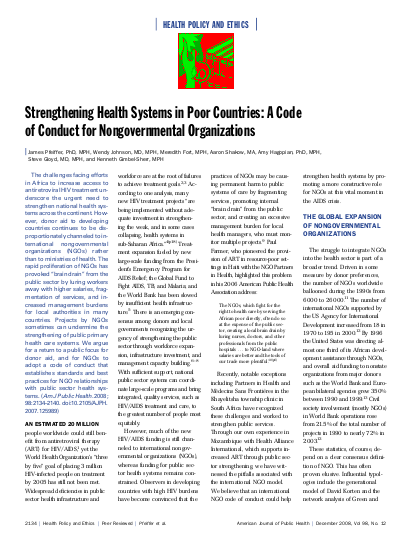
The challenges facing efforts in Africa to increase access to antiretroviral HIV treatment underscore the urgent need to strengthen national health systems across the continent. However, donor aid to developing countries continues to be disproportionately channeled to international nongovernmental organizations (NGOs) rather than to ministries of health. The rapid proliferation of NGOs has provoked ‘‘brain drain’’ from the public sector by luring workers away with higher salaries, fragmentation of services, and increased management burdens for local authorities in many countries. Projects by NGOs sometimes can undermine the strengthening of public primary health care systems. We argue for a return to a public focus for donor aid, and for NGOs to adopt a code of conduct that establishes standards and best practices for NGO relationships with public sector health systems